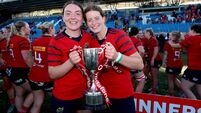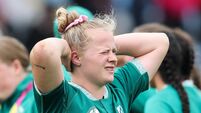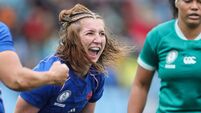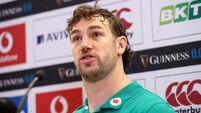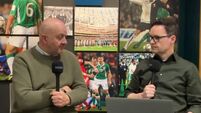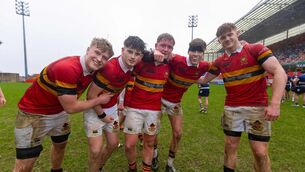Ireland focusing on layers and players as evolution continues
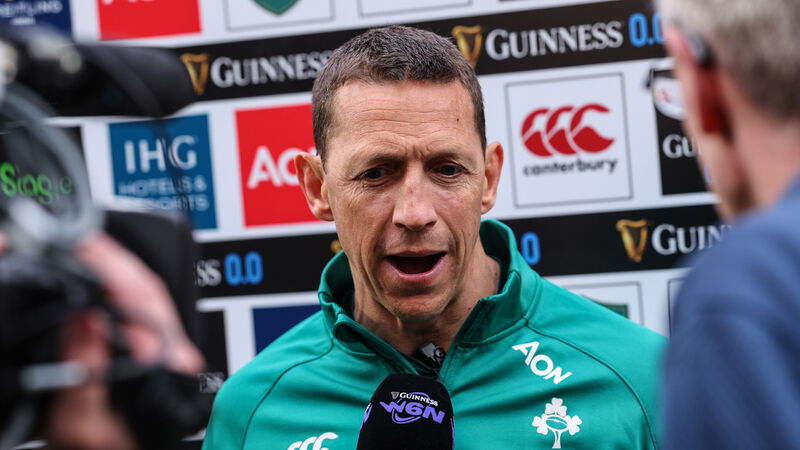
FUTURE PROOF: Ireland head coach Scott Bemand talks with the media after the game. Pic: INPHO/Ben Brady
Rural Berkshire may seem like a curious place to start a match report on a game played in Cork. Bear with us because what we saw on Saturday was an Ireland team making another step forward on a journey that still has miles to go.




